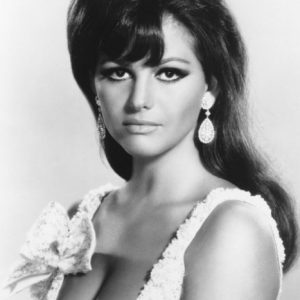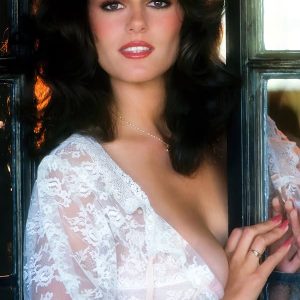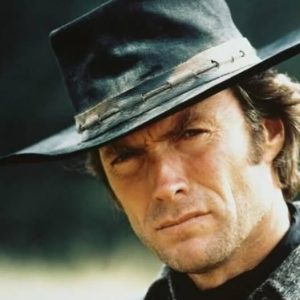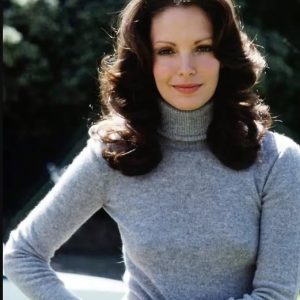The Andy Griffith Show remains an iconic piece of American television, beloved for its blend of humor, warmth, and small-town values. Set in the quaint fictional town of Mayberry, the show captured audiences with its charm and simplicity. While its polished exterior left viewers with timeless lessons, The Andy Griffith Show also had its fair share of humorous slip-ups and quirky details that fans might have missed. Let’s take a dive into some of the hidden bloopers and intriguing backstories that make this classic show even more endearing.
The Theme Song That Could Have Had Lyrics

Few tunes are as instantly recognizable as the whistling theme of The Andy Griffith Show, titled “The Fishin’ Hole.” Interestingly, this memorable melody once had lyrics penned by Everett Sloane. Producers ultimately decided that whistling alone captured the relaxed, easygoing essence of the show better than words, so the lyrics were cut. The famous whistling was performed by Earle Hagen, who also composed the tune. Years later, Ron Howard, who played Opie, recounted how classmates would tease him by whistling the theme during basketball games.
The Magical Glass in “The Big House”
In the episode “The Big House,” Deputy Barney Fife teaches Gomer how to handle a gun. Amid Gomer’s eagerness, he accidentally shatters a glass shelf. Moments later, in a continuity slip-up, the glass shelf appears magically restored. This amusing blunder adds a charming layer of early television quirks and reflects the humble production techniques of the time.
Floyd the Barber’s Disappearing Glasses
A sharp-eyed viewer might catch a funny detail in the episode “The Rumor” from Season 4. In one scene, Floyd the barber is seen wearing a particular pair of glasses. When the camera angle shifts, his glasses have mysteriously changed to a different style! This small blunder is easy to miss but adds a delightful layer to the experience of revisiting the show’s classic episodes.
Barney Fife’s Ever-Changing Shirt in “Barney’s Physical”
In the episode “Barney’s Physical,” eagle-eyed viewers will notice that Barney’s plaid shirt suddenly changes style. In one moment, it’s a simple plaid; then, as he shifts position, a pocket and a cigarette pack appear out of nowhere! This continuity error slipped by unnoticed, yet it highlights the lighthearted mishaps that sometimes made their way onto the small screen.
Opie’s Shifting Bike Bell
In the classic episode “Opie’s Ill-Gotten Gain” from Season 4, another small continuity mistake is easy to overlook. When Opie rides his bike, the bell starts out on the left side. However, in a later shot, it has inexplicably shifted to the right side of the handlebars. This tiny detail may have escaped the editors, but it still provides a laugh for attentive fans.
Barney’s Trench Coat Transformation
The episode “A Black Day for Mayberry” includes a comical moment of wardrobe inconsistency. As Barney enters the Mayberry Hotel, his trench coat is dry. But after a camera cut, the coat appears completely soaked, only to return to its dry state in the next shot. This bit of unintentional “Mayberry magic” is a reminder of the humble beginnings of classic television.
The Disappearing Treasury Agents
In the same episode, two Treasury agents wait at the courthouse for Sheriff Andy Taylor. Rance Howard, father of Ron Howard, plays one of the agents in an early shot. When the camera cuts to another angle, though, two entirely different actors take their place. This switch happened because one of the original actors fell ill and was replaced by Howard, leading to a continuity error that remains in the episode as a unique behind-the-scenes fact.
The Curious Case of the Missing Window
In the early seasons, an interesting set inconsistency occurs in the Sheriff’s office. From the exterior, a window is clearly visible to the left of the entrance. However, from inside, the window is mysteriously absent! Eventually, producers took note and corrected this discrepancy, but this quirky inconsistency remained for much of the series’ early years.
The Robber’s Trick Gun in “The Bank Job”
In the 1960s, special effects were not as advanced, leading to some creative problem-solving on set. In “The Bank Job,” a robber’s gun falls apart in his hands, though if you look closely, you can see the strings that helped make this happen. It’s a subtle detail, but one that adds a vintage charm to the show’s production style.
The Real Bear (and Handler) Cameo
In the episode “Andy and the New Mayor,” a live bear appears in a memorable scene. If you look closely, you might notice the handler peeking out from behind a tree, as well as a chain on the bear. These moments add a real-life touch that reminds viewers of the resourceful yet simple production techniques of the era.
Aunt Bee’s Reputation Behind the Scenes
Frances Bavier’s portrayal of Aunt Bee brought warmth to Mayberry, but off-screen, Bavier was known for her reserved and sometimes prickly demeanor. She often clashed with other cast members, especially Andy Griffith. Richard Linke, the show’s producer, noted that Frances was “moody” due to her age, and the crew often had to tread lightly around her. Years later, Bavier reached out to Griffith to apologize for her behavior, showing humility and appreciation for the bonds formed on set.
Ron Howard’s Smoky Set Experience
Filming in the ‘60s came with unique challenges, especially for young Ron Howard, who dealt with the constant presence of cigarette smoke on set. Howard described the crew as “salty old characters who swore like sailors and drank like fishes,” and noted that his eyes were frequently irritated from the smoke. Despite these challenges, Howard and Griffith developed a close bond, with Griffith becoming a mentor to the young actor.
Don Knotts’s Comedic Genius and the Role Swap
Originally, Don Knotts joined the cast as the straight man, allowing Andy Griffith to take on the comedy. However, by the second episode, the roles shifted as Knotts’s comedic brilliance became evident. Griffith found himself playing the “straight man” to Knotts’s humor, leading to a chemistry that became the heart of The Andy Griffith Show. This role change was instrumental in the show’s success, with Knotts’s comedic timing creating timeless moments of laughter.
A Legendary Finale and Enduring Legacy
The Andy Griffith Show ended its run as the number-one show on television, joining I Love Lucy and Seinfeld in a rare club of series that finished on top. This historic ending cemented its place as one of America’s most beloved sitcoms. The show’s appeal endures, with its timeless humor and life lessons continuing to resonate across generations.
Conclusion: A Classic Show with Timeless Charm
The Andy Griffith Show holds a special place in American culture, not only for its memorable characters and iconic theme song but also for its charming bloopers and continuity errors. These quirks remind fans of the simplicity and earnestness of early television production, adding a human touch to a show that has become a symbol of wholesome entertainment. So next time you’re watching, keep an eye out for these delightful mistakes—each one is a little reminder of the nostalgic world of Mayberry.





